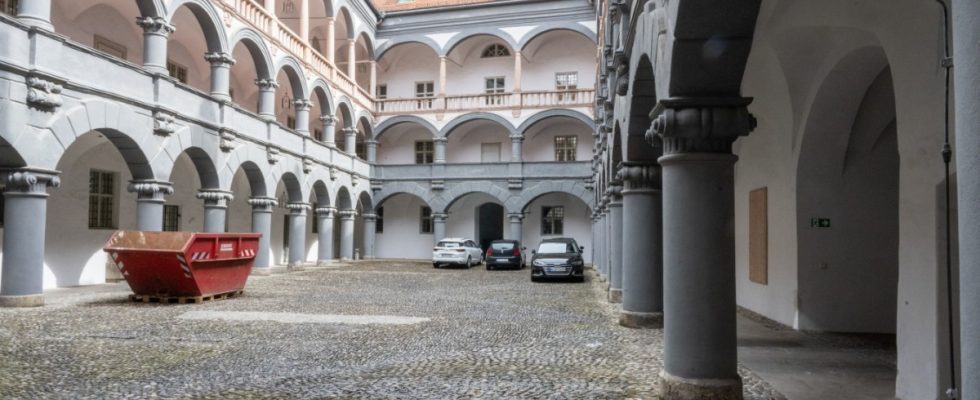In the words of city planning officer Elisabeth Merk, open spaces are “a stage for everyday life in Munich”. And especially in the densely built-up city center, they are “there to be there for everyone”. Recommendations for upgrading such areas are listed in the relevant concept of your authority – because more green not only slows down climate change, but also does people good and beautifies the center. The paper will be presented to city councilors in May.
It is also about open spaces that are not yet available to everyone: the inner courtyards of various institutions that could be made accessible to the public. Of course, according to the planning department’s open space district concept, there are “partly major concerns, since a high level of personnel expenditure, maintenance issues and liability problems have to be clarified”. It is therefore necessary to examine each individual case and discuss it with everyone involved.
For example, the schoolyards of the Salvator-Realschule on Damenstiftstrasse and the Theresia-Gerhardinger-Gymnasium on Blumenstrasse are to be scrutinized. The planning department has 14 other candidates on its list. And their owners react quite differently to the idea, as a small survey showed.
Rejection comes from a sister city authority, the municipal department. It is the landlord of the building on Herzog-Wilhelm-Strasse, which houses the Department for Labor and Economics (RAW). Opening the inner courtyard there is “not feasible,” says Andreas Sigl from the department head’s office. The emergency exits lead into the courtyard, suppliers and postmen need unimpeded access. In addition, one is in the process of redesigning the inner courtyard with plants, incubators and insect hotels in order to increase biodiversity. And finally, secure bicycle parking spaces for employees were recently created there.
With space for insect hotels and bicycles: the inner courtyard of the Department for Labor and Economics.
(Photo: Catherine Hess)
Christoph Kappes, the press spokesman for the archbishop’s ordinariate, also sounds skeptical when it comes to the inner courtyard of the office building on Kapellenstraße. From there, “free insight into some official meeting and conference rooms” is possible. “Personal interviews, counseling and pastoral talks or exams” would be “considerably restricted and made more difficult” if the farm were open to everyone. Instead, the archdiocese is already offering its freely accessible church rooms for “an interruption of the constraints of everyday life”.
Should not be open to the general public: the courtyard of the Archbishop’s Ordinariate on Kapellenstrasse.
(Photo: Stephan Rumpf)
The campus of the downtown clinic of the Ludwig Maximilian University (LMU) between Nußbaumstrasse and Lindwurmstrasse is also on the wish list of the planning department. In principle, it is publicly accessible, but Philipp Kreßirer, spokesman for the LMU Klinikum, would like to leave it with a limited group of users “for the relatively small open spaces”: “Patients in particular should have a protected (free) space available that they be able to use despite an illness or injury.”
The State Office for the Preservation of Monuments, on the other hand, is “open-minded”. “Closeness to the public and openness are just as important to us as public participation in important monuments,” says spokeswoman Juliane Grimm-von Wedemeyer. Your authority resides in the Alte Münze am Hofgraben, one of the oldest buildings in Munich. And its inner courtyard, which otherwise mainly serves as a parking lot, will be open this summer anyway: it is there for the 50th anniversary of the Monument Protection Act a cultural beer garden from July 1st to September 10th planned.

